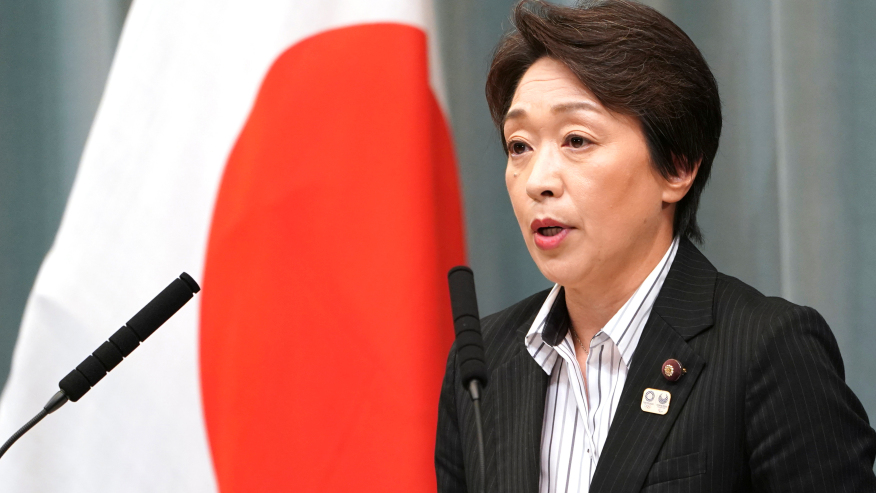
By Michael Houston |
Japan’s Olympic Minister Seiko Hashimoto said Tokyo 2020 should be held next year “at any cost”.
Hashimoto, appointed in September 2019, said the preparations of athletes was her motivation.
Tokyo 2020 has been moved back to next year due to the coronavirus pandemic but doubts still remain about the Olympic and Paralympic Games going ahead safely with the impact of COVID-19 in 2021 still uncertain.
“All the people involved with the Games are working together to prepare, and the athletes are also making considerable efforts toward next year under the circumstances they’ve been handed,” said Hashimoto in a news conference.
“I think we have to hold the Games at any cost.
“I want to concentrate all our efforts on measures against the coronavirus.”
Hashimoto was responding to remarks made by International Olympic Committee (IOC) vice-president and the head of the IOC’s Tokyo 2020 Coordination Commission, John Coates.
Yesterday, the Australian claimed that the Olympics “will take place with or without COVID”.
Hashimoto has the most Olympic appearances of any Japanese athlete, representing the country as a speed skater in four consecutive Winter Games from 1984 to 1994 and as a cyclist in three consecutive Summer Games from 1988 to 1996.
She won a bronze medal in the 1500 metres speed skating event at Albertville 1992.
Hashimoto was also Japan’s Chef de Mission at two Winter Olympic Games – Vancouver 2010 and Sochi 2014 – and one Summer Games when she fulfilled the role at Rio 2016.
She is also President of the Japan Skating Federation.
Initially scheduled for July 24 to August 9 this year, the Olympics are now scheduled to take place between July 23 and August 8, 2021.
The Paralympics are then planned from August 24 to September 5.
A Japanese Government panel held its first meeting on Friday (September 5) to plan steps to counter the pandemic if the Games go ahead.
This was in coordination with the Tokyo Metropolitan Government and the Tokyo 2020 Organising Committee, and was headed by Kasuhiro Sugita.
There is the aim of producing “robust countermeasures” by the end of the year, while a scaled-back and more frugal Games has been promised.
A further four meetings are expected to take place before the end of November.
Issues due to be discussed include travel restrictions for foreign athletes, anti-virus measures at the Athletes’ Village and Games venues and how to handle spectators.
Tokyo 2020 spokesman Masa Takaya did not share the same overwhelming optimism as Hashimoto, but he did state that he believed work was heading in the right direction.
Japan has been boosted by sporting events being held worldwide, albeit under strict restrictions.
There continues to be talk of allowing more fans into stadiums in the country for baseball and football matches, but that has yet to be implemented.
“This has been a big, big encouragement for the staff members of Tokyo 2020,” said Takaya.
“We feel that is another step towards where we can see sports in action in our society.”
Japan currently denies entry to people from 146 countries and regions as part of its fight against the coronavirus pandemic.
Those who are allowed to enter are asked to spend two weeks in quarantine.
It is expected that around 11,000 athletes from more than 200 nations and territories will compete at the Olympics in Tokyo.
Republished with permission from insidethegames.biz.